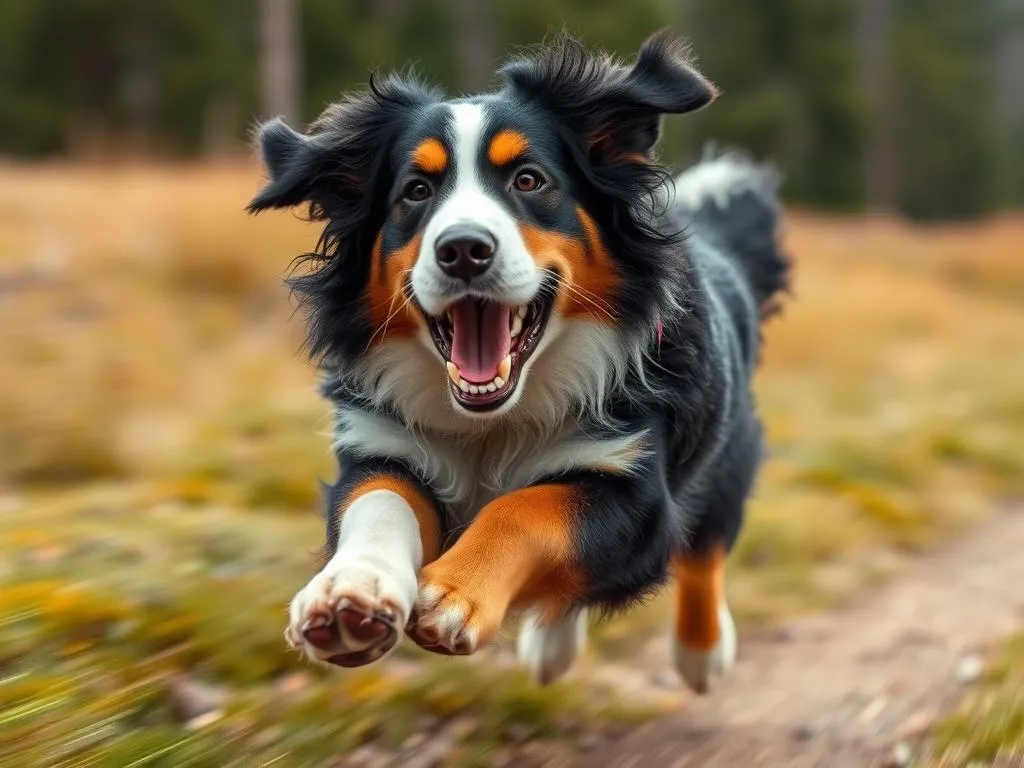
Introduction
Dog health care is a crucial aspect of responsible pet ownership. Ensuring that our canine companions are healthy requires knowledge of their specific needs, particularly when considering their breed. Each dog breed has its own set of health considerations, and understanding these can significantly enhance their quality of life.
One breed that often captures the hearts of dog lovers is the Bernese Mountain Dog. Known for their gentle temperament and stunning tri-colored coats, these dogs are not only beautiful but also have unique health care requirements. As we explore the care needed for Bernese Mountain Dogs, we’ll also delve into a fun fact: how fast can a Bernese Mountain Dog run? This will lead us into a discussion about their fitness and overall health.
Understanding Canine Health Care
Importance of Regular Vet Visits
Regular veterinary visits are essential for maintaining a dog’s health. Routine check-ups can help catch potential problems before they become serious. Vaccinations protect against dangerous diseases, while yearly exams allow for early detection of conditions that may not show immediate symptoms.
For Bernese Mountain Dogs, regular vet visits are especially important due to their predisposition to certain health issues. Staying on top of their health care can significantly improve their well-being and longevity.
Nutrition and Diet
A balanced diet is the cornerstone of canine health. Different breeds have varying nutritional needs based on their size, activity level, and health conditions. For Bernese Mountain Dogs, a diet rich in high-quality proteins, healthy fats, and essential vitamins is fundamental.
Common dietary mistakes include:
- Overfeeding, which can lead to obesity.
- Feeding low-quality commercial foods.
- Not adjusting the diet for different life stages (puppy, adult, senior).
Being mindful of what your Bernese eats will help maintain their energy levels and overall health.
Exercise Requirements
Every dog needs regular exercise, but certain breeds, like the Bernese Mountain Dog, have specific needs. These dogs are large and powerful, requiring daily exercise to keep them fit and healthy.
General exercise recommendations for dogs include:
- Daily walks (at least 30 to 60 minutes).
- Playtime in a secure yard.
- Mental stimulation through training or puzzle toys.
For Bernese Mountain Dogs, incorporating activities like hiking or pulling a cart can be beneficial. Regular exercise not only aids physical health but also contributes to mental well-being, helping to alleviate behavioral issues and anxiety.
Breed-Specific Health Concerns
Common Health Issues in Bernese Mountain Dogs
While Bernese Mountain Dogs are generally healthy, they are prone to certain breed-specific health concerns. Awareness of these issues can lead to more proactive health care.
-
Hip Dysplasia: A genetic condition where the hip joint doesn’t fit properly into the hip socket, leading to arthritis and pain.
-
Elbow Dysplasia: Similar to hip dysplasia, this condition affects the elbow joint and can cause lameness.
-
Cancer Risks: Unfortunately, Bernese Mountain Dogs have a higher risk of developing certain cancers, particularly histiocytic sarcoma.
-
Bloat (Gastric Torsion): A life-threatening condition where the stomach fills with gas and twists. This can happen after eating large meals or exercising immediately after eating.
Lifespan and Aging
The average lifespan of a Bernese Mountain Dog is about 7 to 10 years. As they age, their health care needs change. It’s important to recognize signs of aging, such as decreased activity, changes in appetite, or difficulty in mobility.
Health care tips for aging dogs include:
- Regular vet check-ups to monitor health changes.
- Adjusting diet to senior formulations.
- Gentle exercises to maintain mobility without overexerting.
How Fast Can a Bernese Mountain Dog Run?
Speed Comparison with Other Breeds
When considering how fast a Bernese Mountain Dog can run, they typically reach speeds of 20 to 30 miles per hour. While they are not the fastest of breeds, their speed is impressive for their size.
In comparison, breeds like the Greyhound can run up to 45 miles per hour, while larger breeds like the St. Bernard tend to be slower. Understanding their speed capabilities can help in planning appropriate exercises and activities.
Factors Influencing Running Speed
Several factors influence how fast a Bernese can run:
-
Age and Fitness Level: Younger and more active Bernese generally have better speed and endurance.
-
Health Status: A dog with health issues may struggle with speed and stamina. Regular health checks can help identify underlying problems.
-
Environmental Factors: Running on soft grass is different from hard pavement. Temperature and terrain can also affect a dog’s performance.
Training for Speed and Endurance
To improve a Bernese Mountain Dog’s speed and endurance, consider the following training tips:
- Incorporate interval training with bursts of speed followed by rest.
- Use toys or treats to encourage sprinting.
- Ensure they have adequate warm-up and cool-down periods to prevent injury.
Always prioritize safety during training sessions, keeping an eye on their health and fitness levels.
Preventative Care and Health Maintenance
Regular Health Monitoring
Monitoring your dog’s health at home is just as important as vet visits. Observing daily behavior can reveal much about their well-being.
Key signs of health issues include:
- Changes in appetite or drinking habits.
- Lethargy or decreased interest in activities.
- Changes in weight or grooming habits.
Being vigilant can lead to early detection of potential health problems.
Grooming and Hygiene
Grooming is essential for Bernese Mountain Dogs due to their long, thick coats. Regular brushing helps prevent matting and reduces shedding.
Additionally, dental care should not be overlooked. Dental disease can lead to serious health issues, so regular teeth brushing and dental chews are recommended.
Vaccinations and Preventative Medications
Keeping your Bernese up to date on vaccinations is crucial for their health. Essential vaccinations include:
- Rabies
- Distemper
- Parvovirus
Preventative medications for fleas, ticks, and heartworm are also necessary to keep your dog healthy and free from parasites.
Mental Health and Well-being
Importance of Mental Stimulation
Just like physical exercise, mental stimulation is vital for a Bernese Mountain Dog’s overall health. Activities that engage their minds can include:
- Puzzle toys that challenge their problem-solving skills.
- Training sessions that teach new commands or tricks.
- Interactive games like hide-and-seek.
Socialization with other dogs and people is also crucial for their mental well-being.
Recognizing Signs of Stress or Anxiety
Bernese Mountain Dogs can experience stress or anxiety, which may manifest in various ways:
- Excessive barking or whining.
- Chewing or destructive behavior.
- Changes in eating or sleeping patterns.
Managing anxiety can involve creating a calming environment, using positive reinforcement training, and providing plenty of physical and mental activities.
Resources for Dog Owners
Finding a Good Veterinarian
Choosing the right veterinarian is essential for your Bernese Mountain Dog’s health. Look for qualities such as:
- Experience with large breeds, particularly Bernese Mountain Dogs.
- A compassionate approach to animal care.
- Open communication about health care options.
Online Resources and Communities
Many online resources provide valuable information about dog health. Websites dedicated to canine health care can offer insights into breed-specific issues and general wellness tips. Engaging in online forums or communities can help you connect with other Bernese Mountain Dog owners for shared experiences and advice.
Training and Behavior Resources
Finding a good training program can greatly benefit your Bernese Mountain Dog. Look for trainers who specialize in large breeds and use positive reinforcement techniques. Behaviorists can also provide guidance on managing specific behavioral concerns.
Conclusion
Comprehensive dog health care is essential for ensuring your pet’s well-being. From regular veterinary visits to understanding breed-specific needs, being proactive in health management can lead to a happier, healthier dog.
Owning a Bernese Mountain Dog brings joy and companionship, and investing in their health is a way to give back the love they provide. Remember, being informed and attentive to their needs ensures that your Bernese Mountain Dog can live a long, fulfilling life.
If you have questions or experiences to share about caring for Bernese Mountain Dogs, feel free to engage with fellow dog owners. Together, we can foster a community of knowledge and support for our beloved companions.









